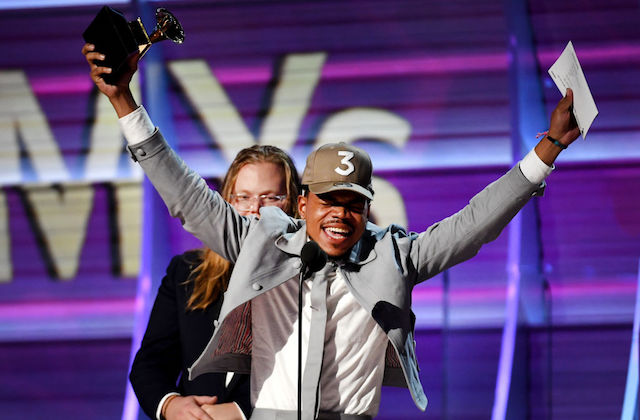The organization behind the Grammy Awards developed a new committee to review rap category nominations as part of a series of nomination rules amendments announced yesterday (June 14).
The Recording Academy’s press release lists new nomination review committees for rap, contemporary instrumental and new age music fields among other reforms, including a transition from paper ballots to online ones and recognizing all songwriters “credited with at least 33 percent or more playing time” in “Album of the Year” nominations. The release adds that the academy’s board of trustees ratified the new rules in May.
The nomination review categories date back to 1989, and the release says the new process will act “as an additional round of checks and balances to eliminate the potential for a popularity bias that puts emerging artists, independent music and late-year releases at a disadvantage.” The awards’ senior vice president Bill Freimuth explained the committee process to Variety:
“These committees started with classical and jazz, and essentially when we hear from a musical community that the nominations are not reflecting what the general community believes to be the best in music in that field—and more often than not, that’s a result of name recognition and popularity and sometimes marketing. They wanted some kind of extra step between the first ballot and the announcement, so my predecessors came up with this concept of a nominations review committee, which is a very formally formed group—people have to prove their expertise, they get submitted by our chapter cities and then things are weighed by other experts and myself and [Academy Chairman] Neil Portnow and our board of trustees, and then it gets ratified by the national board. In most cases, they’ll listen to the top 15 selections from the first ballot from the general voting membership, then they may discuss them or they may not, and then they vote by secret ballot. Those ballots are collected by a representative of Deloitte, our tabulators, their votes get tallied, and their votes directly determine the top five nominees.
“The most recent [prior community] we heard from about this was rock. People felt there was too much of a lean toward legacy artists and the softer side of rock, and this year we heard from rap, contemporary instrumental and new age. For rap, and the other categories to a degree, a lot of their argument was kind of similar—it was going more to big-name folks and felt like more of a popularity contest. That’s not to say that someone who’s very famous can’t put out a fantastic track or album, but maybe some younger up-and-coming folks deserve that spotlight.”
Freimuth did not address specific criticism, but this year’s Grammys faced criticism from Frank Ocean, Solange and many others who feel the academy snubs artists of color in top categories like “Album of the Year.”
Winners in the last Grammys’ rap field included Chance the Rapper’s “Coloring Book” for “Best Rap Album” and Drake’s “Hotline Bling” for “Best Rap Song.”
The 60th Grammy Awards will take place January 28, 2018 in New York City.
(H/t Newsweek)
